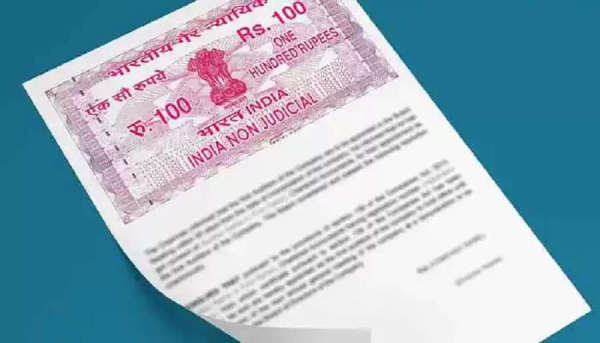
Stamp Paper Rules: What is the law regarding wills in India? How much stamp paper can it be made on? Learn about the rules regarding it.
Stamp Paper Rules: A will is a legal document expressing a person's final wishes, through which they determine the division of their property. People often misunderstand that a will must be written on a specific stamp paper to be valid. However, this is not the case.
The importance of a will in India depends solely on its legal format and the presence of witnesses, not on the price of the stamp. Despite this, there are some rules that must be followed to avoid any disputes over the will. Let us explain the price of stamp paper and what to keep in mind regarding a will.
How much stamp paper does a will have to have to be valid on?
According to Indian law, a will is not required to be written on a specific stamp paper. It can be written on plain white paper and will be considered completely valid, provided it is clear and legible. However, many people prefer to write it on a 10 or 50 rupee stamp paper.
To ensure the document is completely authentic, it is important to note that two witnesses are required to be present at the time of signing. This serves as proof of the will's authenticity. Notarization or registration is optional, but it increases the document's legal validity.
What points should be kept in mind when drafting a will?
When drafting a will, it is crucial that all property-related information is clear and accurate. It should clearly state who is being given what amount and why. The person signing should be in perfect mental health to prevent any legal challenges later. Two witnesses are required for a will, and preferably not family members.
Registering a will is not mandatory. However, if it is registered, the possibility of future disputes is greatly reduced. Any changes made should be included in writing. A will written on plain paper, following all the rules, is considered completely valid.